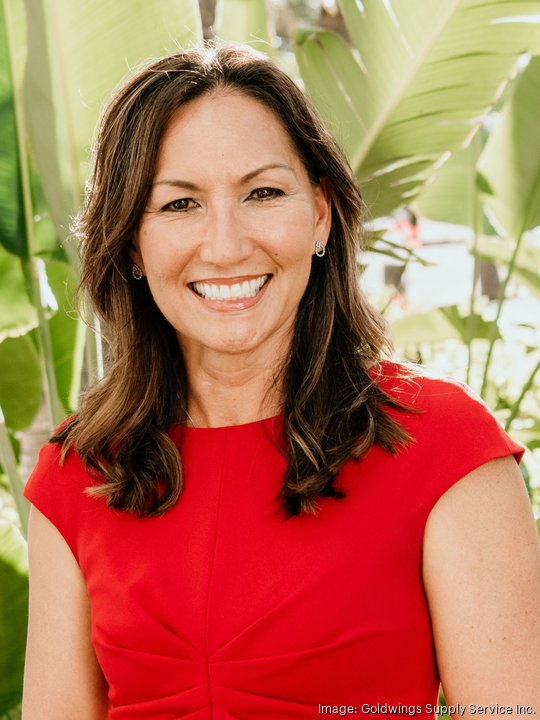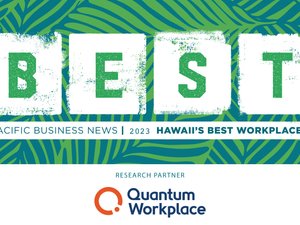
As part of her role as president and chief educational officer of Goldwings Supply Service, Inc., Lia Hunt helps companies to meet or exceed new ordinances for outdoor lighting across Hawaii.
In October 2022, for example, the Maui County Council adopted a measure to restrict the amount of blue light emitted by outdoor lighting fixtures, as it can have harmful impacts on migrating birds, sea turtles and other wildlife, as first reported by Honolulu Civil Beat.
The Native Hawaiian-owned technical solutions provider Goldwings Supply Service, Inc. was founded in 1987 by Hunt's father, Frank Young. Hunt has three decades of experience in the aviation industry and has led the expansion of the business from an aircraft parts supplier into a company that "touches industries throughout the world," according to the Goldwings website.
What kinds of lighting projects has Goldwings Supply Service, Inc. been working on recently? Most recently, we're working on a really successful project over on the island of Maui at the Maui Ocean Center. It is the largest parking lot retrofit on the island that will meet the newest lighting ordinance for the County of Maui, Lanai and Molokai. What's interesting about that is because we worked so closely with these agencies — [U.S. Fish and Wildlife Service] and Dark Sky Association — we knew that this was right around the corner. So together with our partner, First Light Technologies, Ltd., we made sure we were providing a solution that was long-term, sustainable and addressed the pertinent requirements for the future. The impact to wildlife is a big one on Maui, so fully shielded fixtures are being used, and they are solar-powered. The final piece of that is the less than 2% blue light filter.
... And it's not just in our backyard. We're actually doing projects with the National Parks, so that is something that we're trending with this technology nationwide. And that has actually got a different type of advantage because we're removing the electrical component which contributes to forest fires. So with national parks, they value it for different reasons — the light trespass and the light pollution — but now, this added element of not needing electrical wires.
What are some trends to watch within your industry in terms of lighting? Light responsibility, meaning fully shielded lights. The LED optics are improving, so now we're seeing much more directional and purposeful light. We're seeing lower kelvin temperatures, meaning that we as society are realizing that, yes, there is that safety and security piece of the conversation, but that we really have been over-lighting up until now. We're finally pivoting and saying it's not necessary.
So, some of the cool conversations that are happening from this is that you're starting to see much more discussion about the biological impact to all living things. There's a human element to this, and our circadian rhythms are shifted and modified because of the amount of light that we are exposing ourselves to. The best example of this is Las Vegas, where the lights never go off. I think [the trend toward not over-lighting is] something we're going to start to see a lot more of.
What can businesses do to be more energy-efficient, or environment and wildlife friendly? The easiest thing that I think anyone can do is modify their corporate culture, so talk about energy efficiency and not treat it as a task item. Treat their employees as a true extension of their organization and once you start modifying the behaviors that you have with one another, that transcends into their households, and that transcends into how everyone in that household behaves.
So, I think the overarching idea is that if we can modify behavior, then everyone will make better decisions about turning off lights, about being conscious about energy efficiency, more so than we could do with, 'Hey, I'm going to change this light bulb out.' One action versus the actions of masses — it doesn't compare. That corporate culture is super important, having those conversations and making a space for them in your organization so that it transcends.






